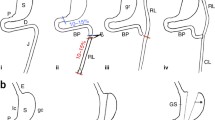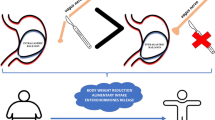Background: We reviewed the experimental surgery, related to bariatric surgery in laboratory animals, to consider new lines of research. Methods: The literature on experimental surgery for morbid obesity since the mid-20th century was reviewed, focusing on existing techniques (malabsorptive, restrictive, mixed and experimental) and their associated metabolic component. Results: In the field of laparoscopy, there is a clear tendency for large laboratory animals such as pigs to be used. These are useful for developing and perfecting techniques. A second area of animal experimentation concentrates on the relationship between metabolism and surgery in order to find improvements in the co-morbidities associated with morbid obesity. A third area of research focuses on manipulating intake via central and vagal control. Conclusion: Further studies are needed to combine traditional and recently developed techniques of experimental surgery with the mechanisms that determine the physiopathology, metabolism and regulation of intake of morbidly obese patients. To accurately determine metabolic behavior and avoid drawing conclusions that are not very significant, these studies should be carried out on obese animals and focus on the co-morbidities associated with morbid obesity.
Similar content being viewed by others
Author information
Authors and Affiliations
Rights and permissions
About this article
Cite this article
Del Castillo Déjardin, D., Sabench Pereferrer, F., Hernández González, M. et al. The Evolution of Experimental Surgery in the Field of Morbid Obesity. OBES SURG 14, 1263–1272 (2004). https://doi.org/10.1381/0960892042387011
Published:
Issue Date:
DOI: https://doi.org/10.1381/0960892042387011




